Anjajavy
Saturday, July 12, 2014
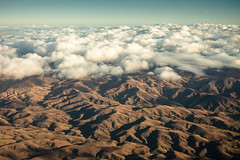
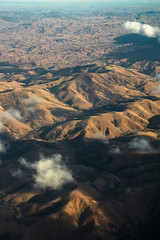
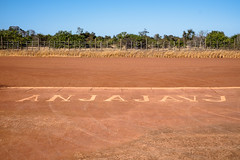
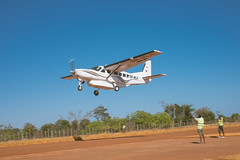
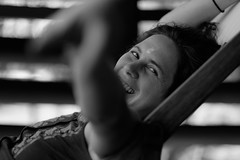
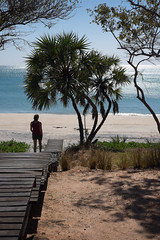
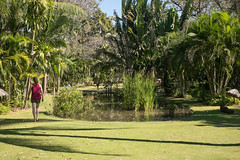
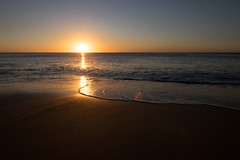
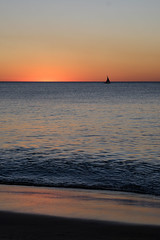
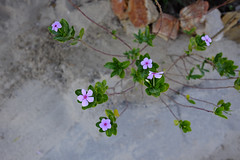
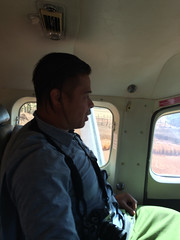
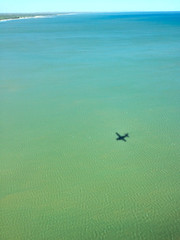
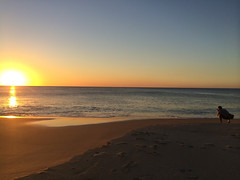
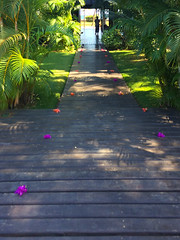
Early in the morning Roy and Jackie took us back to the airport so we could catch a tiny hopper plane over to Anjajavy resort where we are to stay until next Saturday. The plane was “classic” with 80s looking controls and a GPS that looked like it was for a car, but the pilot looked like he could have done the flight in his sleep- he was texting, and chatting away to his co pilot the whole time.It was quite windy so the decent was super bumpy. I was making the :{ face on the way down and I look over and Christian was making the exact same face!
The people leaving on the plane back to Tana included a couple of bloggers from New York with a blog called Cool Hunting. Christian and the other lady at the resort had both heard of it so it must be a big blog – want to remember to look it up when I get back.
Cedric the manager of the resort picked us up and drove us the 20 minute unpaved drive – You could say this place is in the middle of nowhere! Anjajavy is located on a 450 hectare reserve. The only way to it is to fly in or to take a boat to another town and then a bus. No direct roads.
Cedric did a lot of background for us in the car. His family is French (white) but his family has been in Madagascar for 120 years, ever since his grandfather was punished by his family by being sent to sea and he escaped into Madagascar. He started a leather business which did well during the world war.
We picked up a Malagasy man almost immediately – the locals hitch rides with hotel excursions a lot it seems like. None of them have cars and there are barely any roads to drive them on anyway. He turned out to be the mayor of the local village!
Cedric said that both him and the mayor took “power” – Cedric managing the hotel and the mayor managing his village about the same time – 5 years ago. They have worked together ever since and Cedric seems to understand that the success of his luxury resort is very much tied to the success of the village – also called Anjajavy.
The hotel is the largest employer of villagers and they have made many investments in the village, currently building a police station. Past projects include water and electric infrastructure, a health clinic and a school. Cedric was proud that many of the children of Anjajavy employees are literate, even if the employees themselves are not.
Also, the resort helps protect the reserve by giving the villagers other income so they don’t have to cut down the trees and otherwise mess with the nature in order to survive.
This is key in a country like Madagascar. Currently, 95% of Madagascar is deforested – and flying over it this morning we could see how barren the hills looked. According to Barney, the hotel’s “scientific intern” from Cambridge, not even a goat could graze on those miles and miles of hills. There are nature reserves, but they are a tiny percentage of the landmass and they are fragmented which means they can only support small populations of animals such as lemurs. A small number of animals in one place means they are more at risk to disease and poaching and one small incident could push them over the edge to extinction since many plants and animals only exist here in Madagascar (endemic)
Cedric pointed out a beautiful endemic flower that grows everywhere here called the Madagascar periwinkle.
The special thing about this flower is that they have discovered that it helps fight leukemia. Cedric pointed out that this is an example of how biodiversity – keeping many diverse species alive – is our worlds treasure. And we are asking the poorest people in the world to guard that treasure. There is a treaty called the Nagoya protocol that states that if you profit from a plant or an animal you should compensate the country and people where it comes from. Right now a big pharmaceutical company is taking the periwinkle but gives nothing to Madagascar – one of the poorest countries in the world. Europe has signed the treaty but the US has not. If the US signs, China and India will sign.
According to Barney, because of many factors, the ecological situation here is super fragile. 95% deforestation is a lot! He says many plants and animals will not be around after 10 years and he tells people he knows that if they want to see Madagascar now is the time to see it
Places like Anjajavy are key to helping locals protect the little nature that is left. I can see this place is trying its hardest to do it right.
(NOTE: when I got back to the US, I found out that Thomas Friedman, New York Times columnist was in Madagascar at the same time we were! And he wrote a very similar article published a few days before I got back saying almost the same things I wrote about here:http://mobile.nytimes.com/2014/07/27/opinion/sunday/thomas-l-friedman-what-is-news.html?referrer=&_r=0)
And it is the fanciest place Christian and I have ever stayed! The food is delicious, the service is top notch, the facilities are beautiful, and we have been maxing and relaxing ever since we got here – much needed after our intense wedding planning this last year.